|
Participants: Oystein Brager, Helen Budge, Colin Ellwood, Emily Essery, Julia Gale, Valerie Gogan, Emmanuela Lia, Rob Pomfret, Charlotte Pyke, Dom Shaw Zara Tomkinson Simon Usher, Julia Winwood, Hemi Yeroham
Friday’s session (19th June) was a covering of the waterfront of human experience and an exploring of dramaturgical possibility. Two new plays (with writers in attendance) each implying opposite conceptions of the universe, and both in different ways questioning the dramatic effectiveness of linear causative action. Clouded Yellow, by Norwegian playwright and dramaturge Oystein Brager. centres around the mid-life crisis of thirty-something rock festival producer Jason. In his efforts to set up a ‘grassroots’ event without headliners, he repeatedly encounters musicians whose lives he has inadvertently changed through their having met at one of his festivals and became partners, or left their partners for each other. Is this fate - or randomness, the butterfly effect, as embodied by the eponymous species here making a Hitchcock-like cameo appearance in the action? The play also offers its own version of pathetic fallacy in the form of turbulent weather and - as an examples of a system half-way between design and chaos - dodgy plumbing. On subsequently discovering that the orientating anchors of his life, his wife and marriage, aren’t as solid as he claims (his wife is suddenly in need of extreme support on her sister’s unexpected death from cancer) Jason’s mid-life-crisis hits full breakdown mode, further prompted by his realisation that any decision/action he makes might have catastrophic unintended consequences. The ensuing physical and room-trashing violence is the play’s well-judged cathartic moment, the electric storm that clears the preceding uneasy (literal and metaphorical) turbulence. We are all, it seems, embodiments of haplessness, all Jaques Tatis morphing occasionally into mini Oedipuses. This of course is the opposite of what the standard want/need-based drama implies, and through which audiences are reassured by the clear effectiveness of intended actions, however morally illicit they might be. Here the characters’ collateral effects are more significant and interesting than their intended ones. If the lynchpin of the play is Jason’s tragi-comedic meltdown, the action then goes freeform, with a wonderful choric ‘sounding’ of recalled voices slowly echoing and alliterating around words potentially talismanic to meaningful survival in a chaotic world. Its ’words worth remembering’ include ‘craft’, ‘complicity’, ‘control’, ‘concede’ and ‘choice’ but also ‘cruel’ and ‘chaos’, all of course tacitly generated in the context of the plays catharsis-provoking big ‘c’, cancer, this latter being perhaps the ultimate apparently randomised variable. Having opened with a swirl of rather relaxed chatty ‘recounting’ scenes, then tightened ‘ things round Jason’s home-returned breakdown before movingly ambushing the audience with his subsequent plangent, stark ‘starburst’ of floating voices, Brager ends with a suggestion that art can redeem chaos or at least surf it through recognising and formally processing its randomly-generated patterns (rather as in the play itself). ‘I rise because of you’ (‘you’ being the ‘winds’ of chance) is the concluding lyric composed by another significant character, a professionally and personally jilted singer songwriter. Another lovely touch is the restorative moment before the play’s ‘big bang’ into choral abstraction, consisting entirely of, and named, ‘breath’. Breath of course in general being a mini-wind that recuperates rather than destroys. In the reading itself many memorable things emerged, such as the tragi-comedic melt down of Jason, and two participants spontaneously and jointly musicalizing lyrics to a song that as characters they are supposed to know well. Overall, some really great ‘owned’ and inflected individual readings. If the joyfully profane Clouded Yellow was an exploration of the creativity of mess, A Beautiful Room To Die In, Julia Gale’s meditative dramatic engagement with the thought and experience of mid-Twentieth-century mystic and philosopher Simone Weil, implies a much more concerted and ultimately centripetal universe. Very much in contrast to Brager’s entropic, centrifugal one. Gale’s is an ambitious attempt at that apparently oxymoronic form ‘dramatic contemplation’, here rendered with the electric charge of a symphonic movement by Bruckner. The script consists of moments leading up to Weil’s death in a hospital in Ashford, Kent in 1943, and of her earlier epiphanies here evoked as if stations of the cross. The play also attempts a very ambitious concentration of modes: Representation – the fictional dramatic situation – part cedes centrality to Being. Insofar as the former persists it is in concentrated and reduced form, a residual ‘saturated’ representation of part-emblematic character, place, space and situation. These in turn are rendered trans- (rather than post-) dramatic: we are simultaneously and multiply in a hospital room, a ‘fictionalised/real theatre and, most tellingly, in the ‘beautiful’ room of a life-ending grace. In classic ‘symbolist-drama’ conceit, a window here offers a much contemplated view into infinity. The central characters, the dying, self-mortifying Weil and the querulous, bibulous, clearly ‘wanting’ (in both the appetitive and pejorative sense of that term) Wanta, are waiting for God, or at least for gifted baptismal grace. The play owes a clear debt to its ‘waiting drama’ avatar, Becket’s Godot, including for some ‘shoe’ action and regarding the presence of an abject, wordless ‘Lucky’ character. Overall, though, its experience is like watching a giant space craft in the final stages of a perilous docking: one false slip by the central character at this late stage would lead to disaster. Each scene is precipitated by Wanta’s mis-firing re-entry into Weil’s ‘beautiful room’. Like a fly to a light bulb, Wanta’s assays are a misfiring search (and act as a foil) for what Weil is slowly and deliberately moving towards: grace, absolution and uniting with God. The action is built around the tension between these two vectors; the straight and the crooked line. Weil also momentarily wobbles. The only available effective ‘truth’, we are told, is the desire for God, and the recognition of that desire rather than any speculation or deliberate moves towards its slaking. We must acknowledge only ‘our freedom/to accept the thing/we necessarily are’. Human misfortune, the apparent chaos of the universe, is here designed to drive a nail into the human soul as a necessary mortifying agent, of which we must be passive and accepting recipients. The human imagination ‘works continually to block all the fissures through which grace would pass’. As with Clouded Yellow, but in a different way, all this is the opposite to conventional ‘instrumental’ dramatic action. The play’s gestalt is further layered, for as well as the beatific, dying Weil and the needy, hapless Wanta, we are offered the witnessing (and commenting) presence of Weil’s biographer Simone Pétrement, and the audience-representing haut-bourgeois ‘Husband and Wife’ come to watch what they imagine will be a straightforward biographical dramatization of Weil’s life as the highest of high culture. The keen-to-please Wanta feels obliged to enlighten the Husband with the biographical details of Weil that he expects, and the play further implies that Wanta and the Wife may have had an affair. Weil’s back story is therefore multiply motivated, as a way of bearing witness to the audience/husband, as an instrumental component of Weil’s final docking and also as a way of Wanta beating herself up. A recently-bereaved young cleaner, her fiancé killed in the war, latterly offers another quietly searching foil for Weil, evoking the latter's period spent working on an industrial production line in a show of Marxist solidarity. Aiming for immanent presence (in this case with God) without Eliot’s ‘distraction from distraction by distraction’, the play makes sophisticated use of gestural – including verbal gestures – rhymes and echoes in its evoking of the sense of something slowly emergent, slowly moving to a self-completion: ‘All the natural movements of the soul are regulated/by laws analogous to those of/material gravity’. The play’s text, possibly unlike the god it seeks to invoke, is unforgiving and stark, offering no hiding place for the actor, who must surely simply commit. Its thought is rewardingly complex and subtle (for example when different modes of waiting are evaluated). Shades perhaps of Eliot’s Four Quartets in both its pared-down prosody and such as its Bergsonian treatment of time. For the most part it was here given a measured and probing reading, with nerves creditably being held throughout. CE
0 Comments
Leave a Reply. |
INDEX of dates:
INDEX of playwrights and plays:
INDEX of contributors:
|
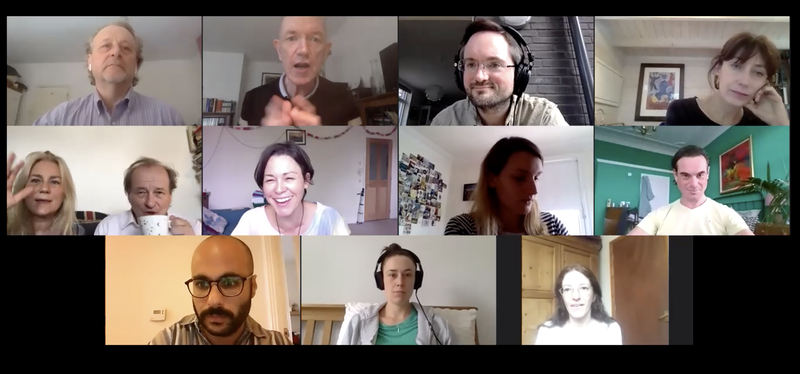
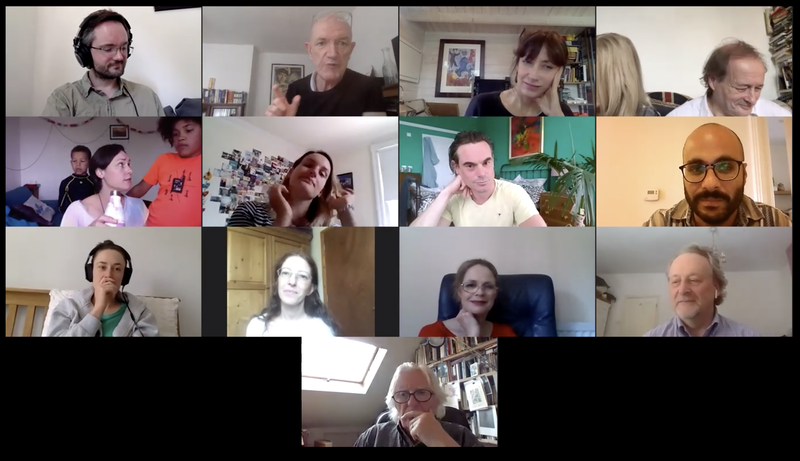
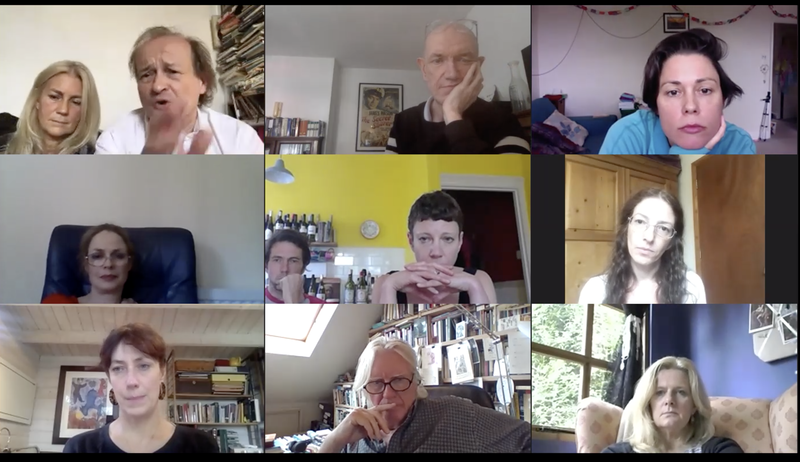
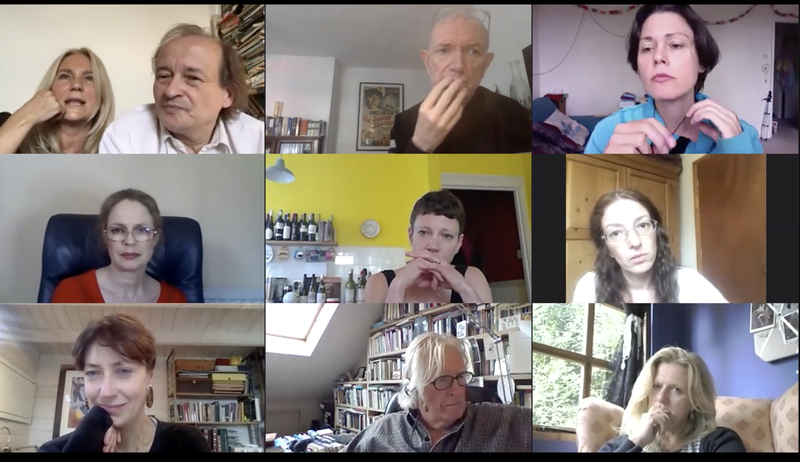
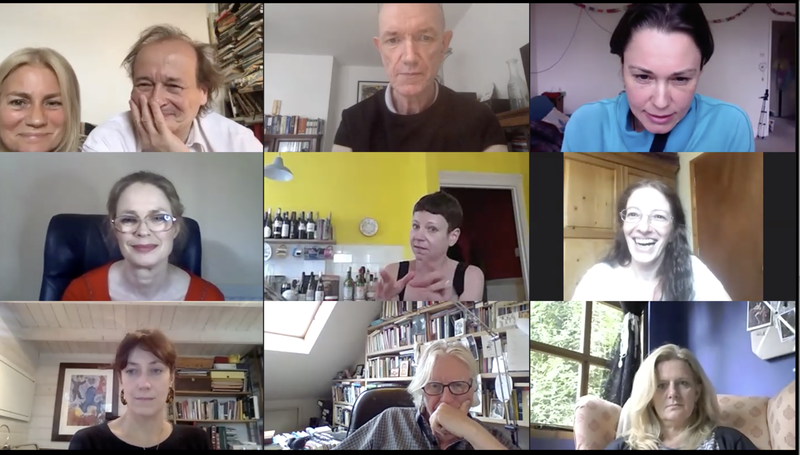
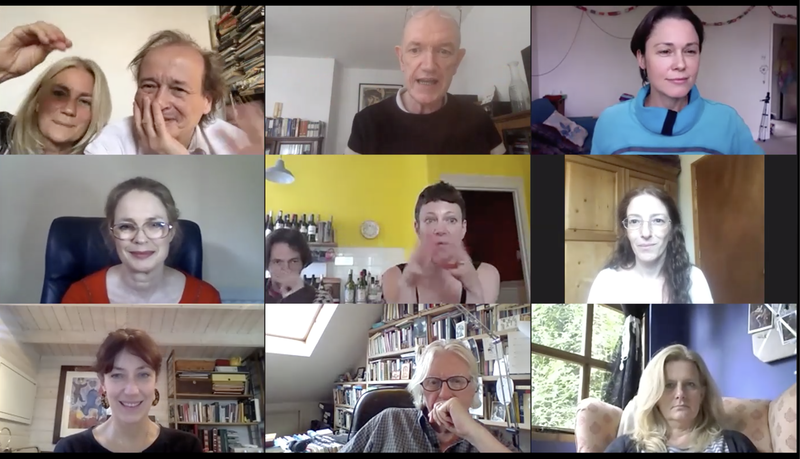
 RSS Feed
RSS Feed
